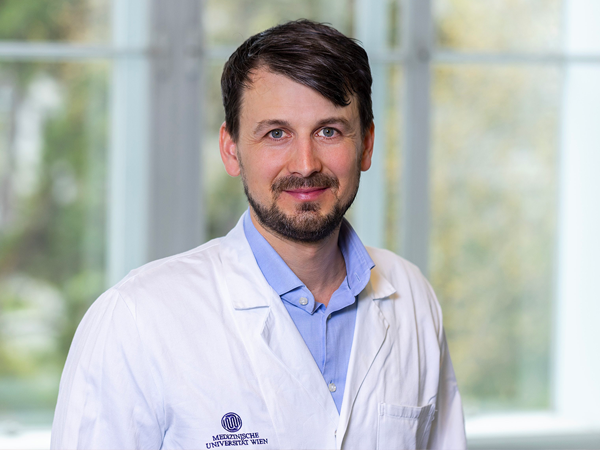Today, the National Brain Tumor Society (NBTS) announced that Johannes Gojo, MD, PhD, of the Medical University of Vienna (Medizinischen Universität Wien), is the recipient of the first-ever CERN PFA Ependymoma Translational Research Award. Dr. Gojo will lead a renowned, interdisciplinary team of pediatric brain cancer experts on a project titled “Targeting DNA damage response to eradicate ependymoma persister cells (DEEpend).” With the overall aim of translating promising research into the clinic for a particularly aggressive type of pediatric brain tumor, the group will receive $450,000 over three years.
“With great intentionality, we launched this grant because of the clear, unmet need for research in posterior fossa ependymoma (PFA), an underserved cancer that is devastating for the children and families in our community,” said Kimberly Wallgren, executive director of the CERN Foundation, a program of the National Brain Tumor Society. “PFA ependymoma is a difficult disease to research and there are few laboratories or life science companies dedicated to this tumor type. Our hope with this award is to accelerate scientific findings through Dr. Gojo’s translational research plan and to further stimulate additional and subsequent efforts to change the outcome for children diagnosed with this disease.”
The scientific aims of the grant build on previous research, which uncovered that a proportion of PFA cells within a tumor harbor stem-cell like features and give rise to recurrent tumors. Based on preliminary data from the Gojo lab, the project will investigate whether these “persister cells” can be targeted by adding inhibitors of DNA damage repair to standard treatment with chemotherapy and radiation therapy. In order to enable the most direct translation of research findings into a potential clinical trial, the team will make use of currently-available, extensive datasets of ependymomas; multiple types of ependymoma models; and high-throughput screening of already-approved drugs to identify the best combination therapies ready to advance to the clinic as a novel treatment for PFA ependymoma patients.
“We are excited to receive the award, which enables us to investigate how we can better eradicate therapy-resistant ependymoma cells, aiming at developing more effective therapies against this aggressive tumor type,” said Dr. Gojo.
The project team is composed of world-renowned translational researchers with both biological and clinical backgrounds, all having a longstanding expertise in ependymoma research and investigation of innovative therapeutic concepts. Coordinated by Dr. Gojo, the project will benefit from collaborations across the pediatric neuro-oncology program at the Medical University of Vienna, including Drs. Walter Berger, Deputy Head of Center for Cancer Research; Christine Haberler, Lead Pediatric Neuro-Pathology; Franziska Eckert, Deputy Head of Radiation Oncology; and Daniela Lötsch-Gojo, Head of Neurosurgery Research Lab. They will be joined by international collaborators including, Drs. Marcel Kool, Princess Maxima Center Utrecht/KiTZ Heidelberg; Mariella Filbin, Harvard Medical School/Dana-Farber Cancer Institute; Julia Schüler, Charles River Freibrug i. Br., Germany; and Samuel Abbou, Gustave Roussy, Paris.
PFA ependymoma is a rare, but aggressive brain cancer that occurs in younger patients, primarily infants, with a mean age at diagnosis of 3 years old. These tumors are generally associated with a poor outcome, typically returning even after complete removal of the tumor and subsequent radiation and chemotherapy. There is currently no standard of care and no approved treatment for PFA ependymoma, and 10-year overall survival is only 56 percent.
About the National Brain Tumor Society
Building on over 30 years of experience, the National Brain Tumor Society (NBTS) unrelentingly invests in, mobilizes, and unites the brain tumor community to discover a cure, deliver effective treatments, and advocate for patients and caregivers. Our focus on defeating brain tumors and improving the quality of patients’ lives is powered by our partnerships across science, health care, policy, and business sectors. We fund treatments-focused research and convene those most critical to curing brain tumors– once and for all. Join us at BrainTumor.org.



